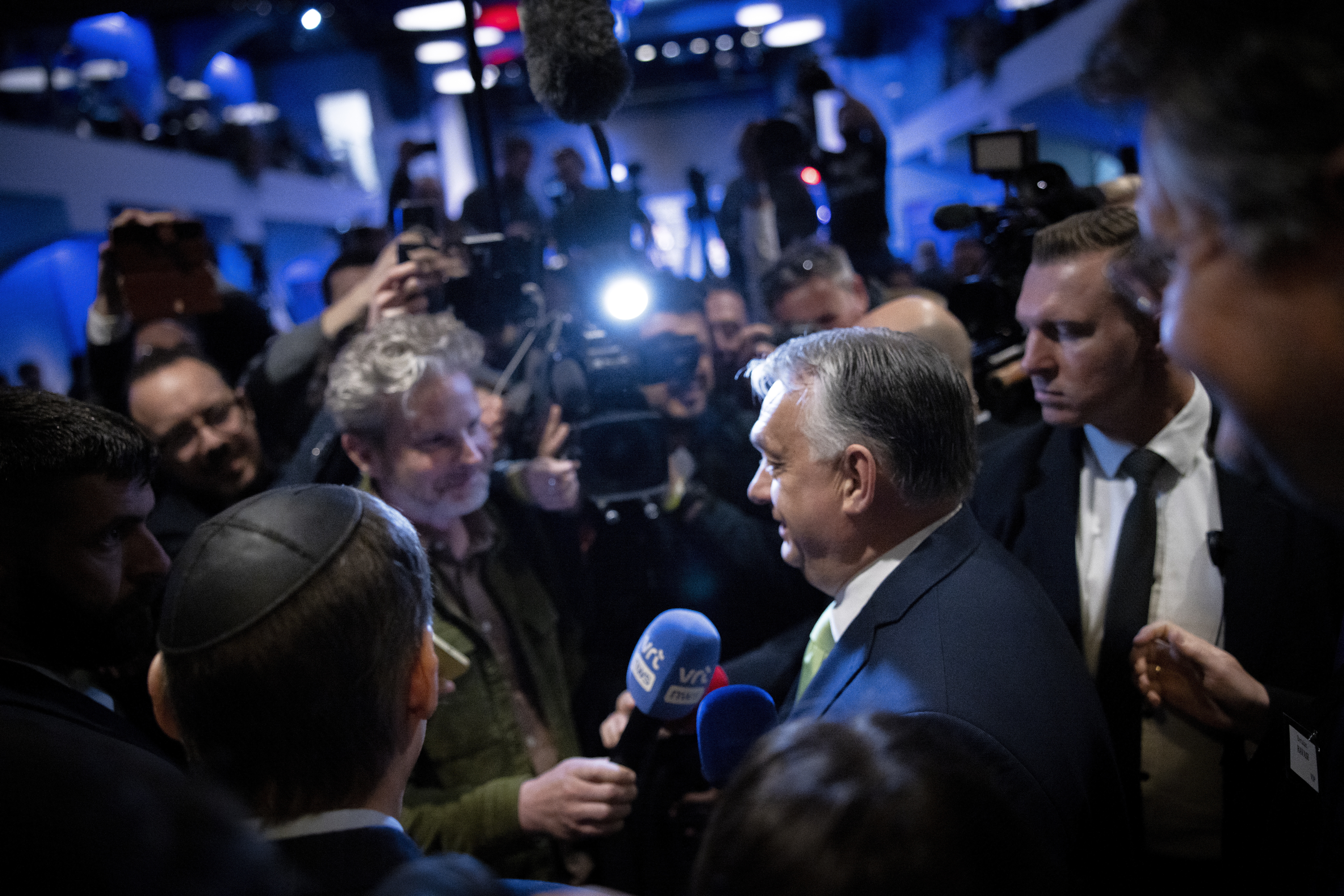In the midst of ongoing attempts to thwart the gathering of peace-loving, migration-opposing conservative forces in Brussels, Prime Minister Viktor Orbán delivered an address at the National Conservatism Conference, which faced unprecedented legal and physical barriers orchestrated by the city's administration.
During a profound conversation with Yoram Hazony, chairman of the Edmund Burke Foundation and organizer of NatCon, PM Orbán revisited themes from a previous NatCon conference in Rome. Reflecting on the political landscape since then, he emphasized that while the challenges remain consistent, the strengthening right wing across Europe offers a beacon of political advancement.
PM Orbán expressed a steadfast stance on migration, advocating for an EU policy where "asylum seekers remain outside the union's borders until their requests are processed." He also criticized the European Commission under Ursula von der Leyen for becoming overly politicized, deviating from its role as a "guardian of treaties."
The discussion additionally touched on various topics, including the Polish elections and campaigns. Prime Minster Orbán described himself as a man of action rather than intellectual discourse, underscoring the need for change across Europe. He pointed out the failures of the green transition, agricultural promises, and migration policies that have only led to a larger crisis than before, saying that "they said they would solve migration; now a larger migration crisis looms than before."
Echoing the sentiments of East versus West, the prime minister illustrated how national endeavors have historically resolved conflicts in Eastern Europe. He reminisced about past political debates with leaders like Helmut Kohl and Tony Blair, lamenting the current lack of substantive political discourse. “Thirty years ago, political debates with Kohl and Blair represented a different level of content," he said.
PM Orbán highlighted his critics denouncing him as a populist while he maintains a track record of fulfilling promises to Hungarian voters, particularly in opposing migration and defending families against gender ideology, firmly stating, "We said no to migration, and so we did; we said no to gender ideology, and we protect our children."
The dialogue further delved into the legacy of communism and the persistent challenges it posed, drawing parallels with the hurdles faced at the conference. PM Orbán reiterated that if the lovers of freedom unite and fight, victory is possible, emphasizing, "If we fight, we can win."
The conference conversation not only reaffirmed PM Orbán's commitment to preserving Hungary's Christian foundations against the influx of non-European civilizations but also showcased his pragmatic approach to migration, with an emphasis on security rather than demographic needs. He elaborated, "The real reason the liberals support migration is not demography, but to get votes."
The prime minister’s discussion with Hazony at the National Conservatism Conference underscored a pivotal moment for European conservates. As they navigate through external pressures and internal debates, leaders like PM Orbán are setting the stage for a crucial battle over Europe's cultural and political future—advocating for a Europe that respects national sovereignty and traditional values against the rising tide of globalist ideologies.

